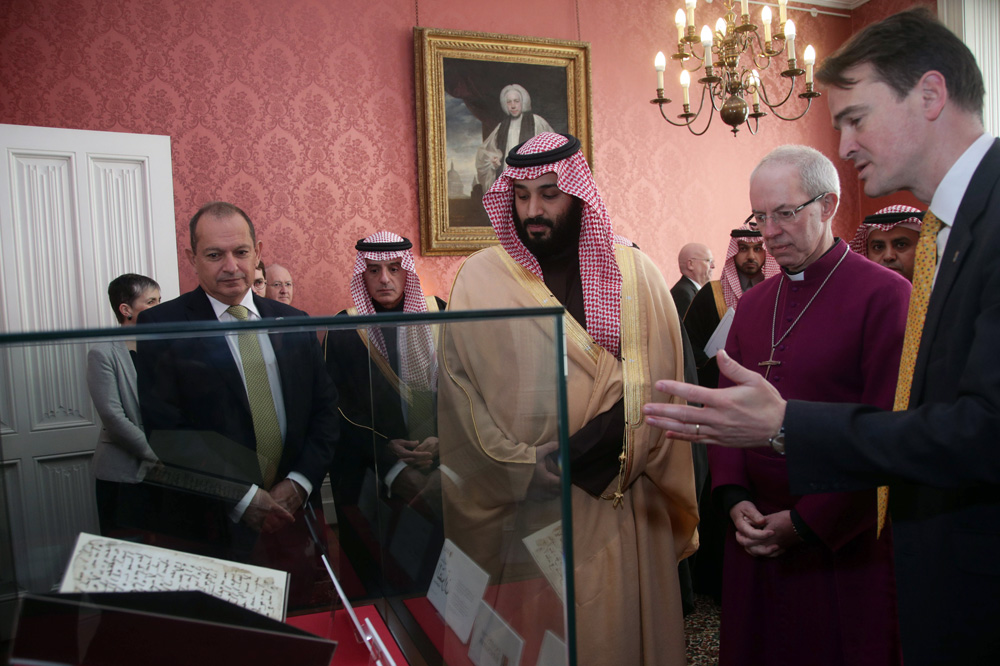
Since his ascension to his role last year, Saudi Arabia’s Crown Prince Mohammed Bin Salman has vowed to return the Kingdom to the moderate Islam of its past. Since then, the 32-year-old Crown Prince has been meeting with key religious leaders across the globe to also spread the message of interfaith tolerance to his people.

His recent efforts in strengthening this message of acceptance have included meeting the head of the Anglican church in London last month, promising to promote interfaith dialogue as part of his domestic reforms, as well as meeting with a group of Jewish and Catholic leaders in New York in a rare show of interfaith dialogue.

With regards to his New York visit, the Saudi Embassy in Washington said in a statement that the meeting “emphasized the common bond among all people, particularly people of faith, which stresses the importance of tolerance, coexistence, and working together for a better future for all of humanity […] The Kingdom of Saudi Arabia has always, and will continue to champion expanding dialogue; building a better understanding among the faiths, and focusing on the shared humanity of all peoples.”

Just this week, the Crown Prince’s father, Saudi Arabia's King Salman, met French cardinal Jean-Louis Tauran, head of the Vatican's Pontifical Council for Interreligious Dialogue, in Riyadh Saudi state news agency SPA reported.

According to Business Insider, the meeting, the first between the current Saudi ruler and a Catholic official, was one in a series of meetings between “senior Saudi figures and representatives of other Christian traditions in recent months, raising hopes of more openness” in Saudi Arabia, which is home to Islam's holiest sites.
According to Pew Research Center, the Saudi Arabian government has followed an ultraconservative interpretation of the Quran for decades, with strict doctrine that has been upheld by clerics who run the judiciary and by religious police. But, recently, Crown Prince Mohammed has been pushing back against the clerical establishment, loosening social restrictions, and scaling back on the role of the religious police.

















